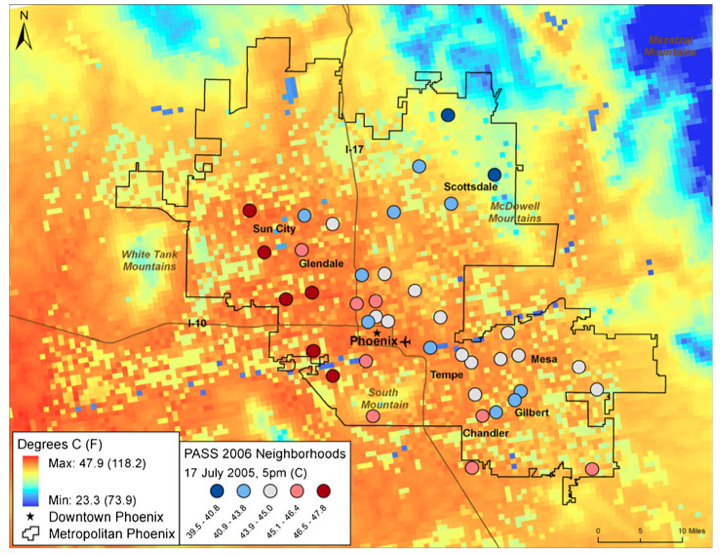The international journal Climatic Change recently published a paper by GIST instructor Dr. Darren Ruddell that investigates complex landscapes of the perception of temperature by the public. The study by Ruddell et al. examines temperature variability within metropolitan Phoenix by comparing public perceptions with scientifically derived measurements. The research, implemented as part of Ruddell’s Ph.D. at Arizona State University, showed that exposure to high temperatures varies substantially throughout the city and that while experience to elevated temperatures governs perceptions at the local scale, perceptions of the regional temperature are influenced by social characteristics.
The research addresses the apparent disconnection between ambient temperature and perceptions by the public of those temperatures. If the public mis-perceives temperature, especially extreme temperatures associated with climatic warming, then acceptance of policies that mitigate those changes will be lower.
Ruddell and his colleagues found that personal beliefs, attitudes, and social affiliations often distort a person’s perception of temperature at the regional, although such perceptions are accurate at the local neighborhood scale. In other words, if a person is predisposed ideologically to believe that climate is warming, he or she will accurately assess immediate surroundings, but have an altered perception of regional conditions.
The article, “Scales of perception: public awareness of regional and neighborhood climates,” is co-authored by Sharon L. Harlan, Susanne Grossman-Clarke, Gerardo Chowell of Arizona State University.
Ruddell joined the Spatial Sciences Institute faculty in 2011 and teaches in the Geographic Information Science and Technology M.S. program.





